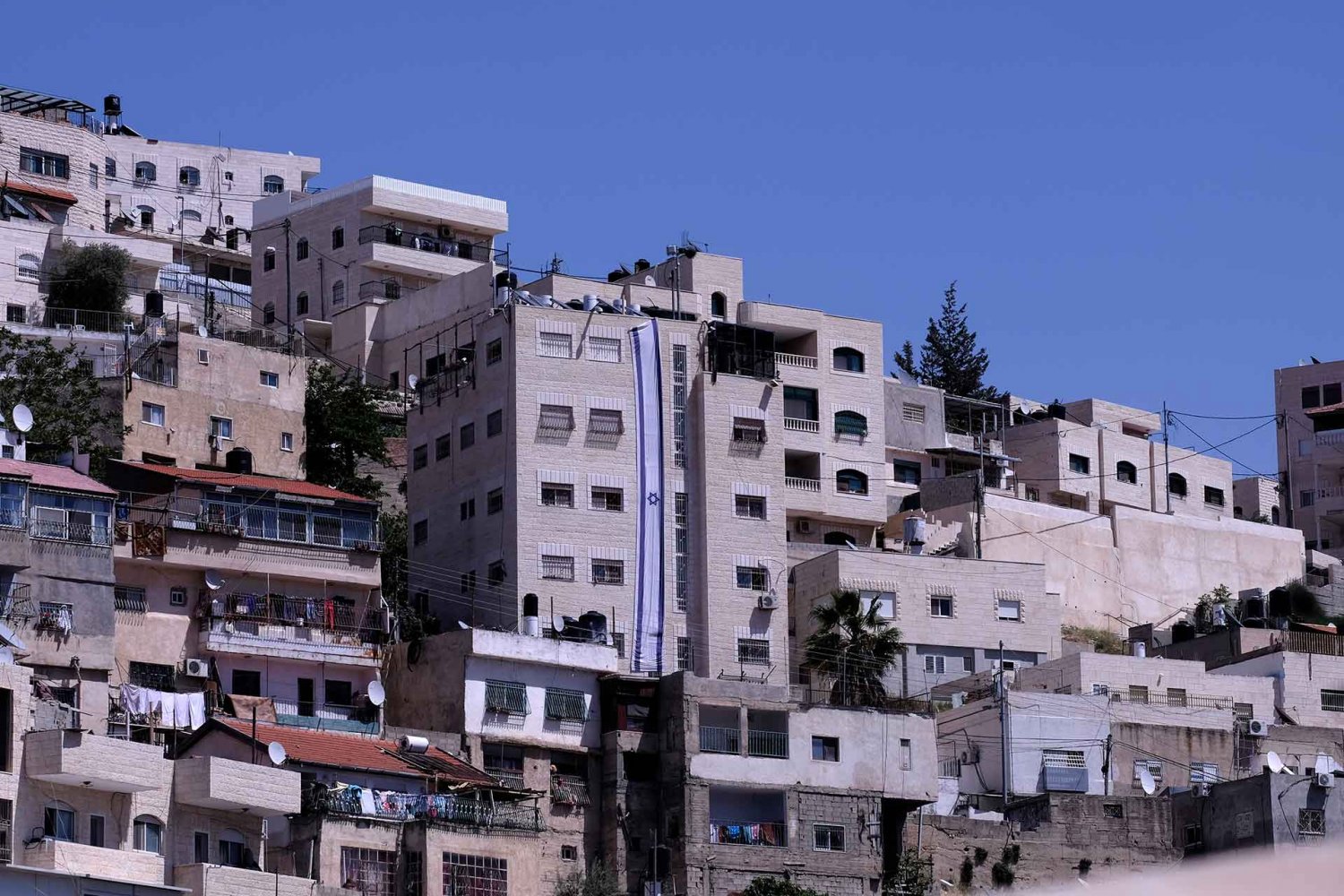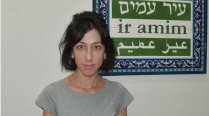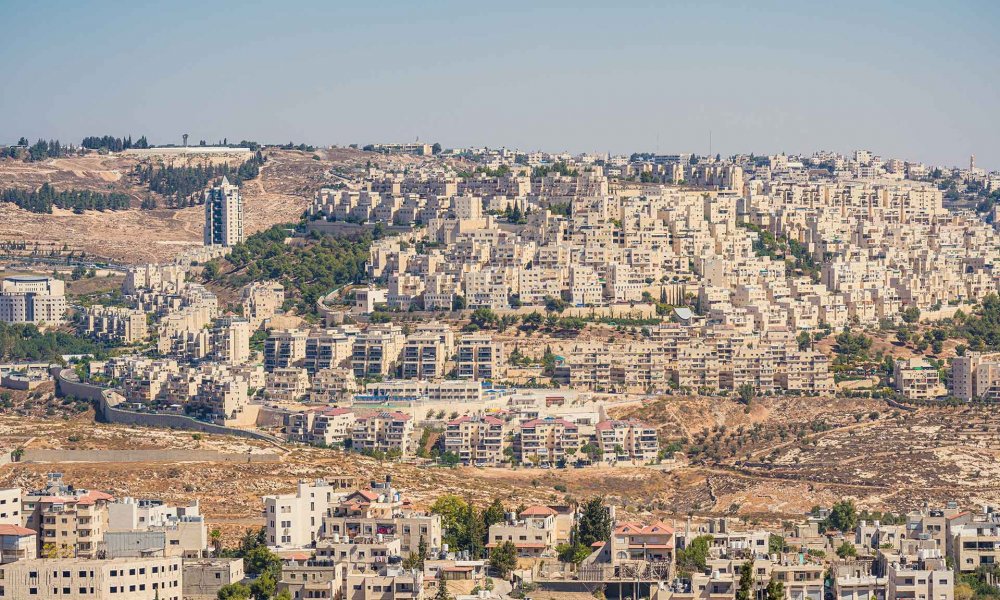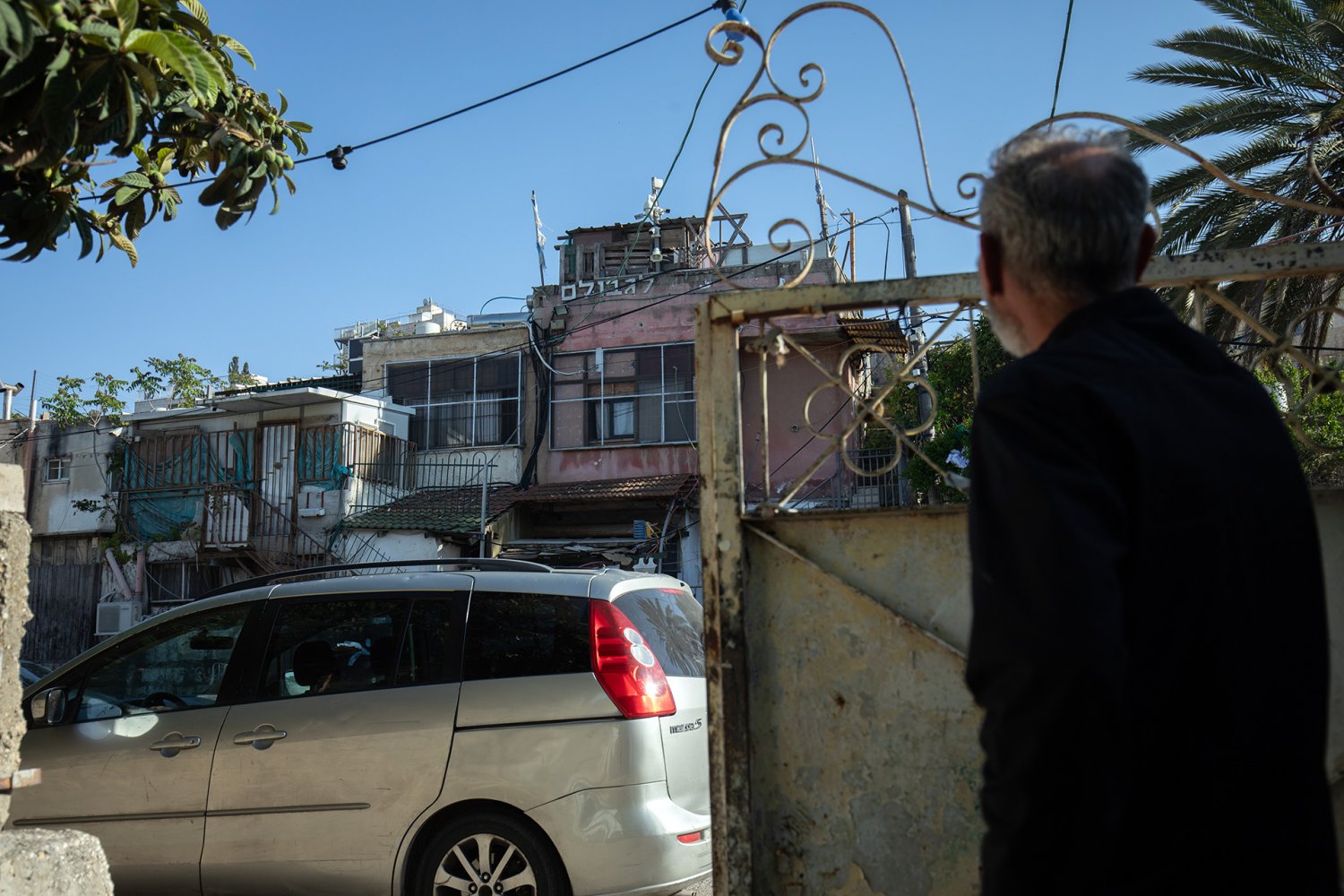Overview

Credit:
Eddie Gerald, Getty Images
State Land Registration in East Jerusalem Continues to Advance Settlement Goals, Dispossess Palestinians
Snapshot
Since 2018, Israel has been undertaking an extensive initiative of finalizing land title in East Jerusalem, a process called SOLT, in violation of international law. The Israeli NGO Ir Amim, which focuses on Jerusalem, has been tracking developments closely.
Israel froze settlement of land title (SOLT) procedures when it occupied East Jerusalem in 1967 (see The Complex and Unresolved Status of Land in East Jerusalem) and didn’t renew the process until 2018 under Government Decision 3790, a five-year plan to “reduce socioeconomic gaps and advance economic development in East Jerusalem.”1
After carefully monitoring the SOLT process, in June 2023, Ir Amim issued an alarming report calling SOLT a “grand land theft.” The report concluded that Israel is using it not to register land rights for Palestinians, but rather to dispossess Palestinians in order to seize more land for Jewish settlement and solidify Israeli sovereignty over East Jerusalem (see The Settlement of Land Title (SOLT) in East Jerusalem: “The Most Acute Threat Facing Palestinian Residents of Jerusalem Today”).
In August 2023, the plan was renewed for another five years under Government Decision 8802 with a budget of 3.2 billion shekels ($850 million).3 Compared to Government Decision 3790, the renewed plan doesn’t concentrate on SOLT to the same extent, yet Israel remains committed to enacting and escalating SOLT procedures across East Jerusalem, and is doing so in full collaboration and alignment with settler groups.
As we reach the one-year mark since the report’s publication, Jerusalem Story sat down with Amy Cohen, international relations director of Ir Amim, and Gaal Yanovski, Ir Amim’s policy coordinator who specializes in SOLT, to discuss the latest developments over the last year.
Jerusalem Story: What have been the major updates regarding SOLT in the last year?
Gaal Yanovski: So, it’s important to frame it within the five-year plan. Officially the five-year plan ended in May 2023, but actually it lasted until the end of 2023, because the way it works, the five-year plan began in May 2018, so five years until May 2023. But because the way the ministries work, their budget is for the whole year. So, the government divided the five-year budget so that the last year would last for the year of 2023. And then the new five-year plan was supposed to begin in 2024.
[However,] the Ministry of Justice still had the funds from within the five-year government plan to conduct SOLT in East Jerusalem. There were 50 million shekels for these five years. [In the new Government Decision 880,] the chapter dealing with SOLT is very different from the one last time, which was mostly land registration. This time, it’s mostly planning, and the part of land registration is very small within the government plan. If conducting the SOLT in East Jerusalem wasn’t the Officer of Settlement of Land Title’s aim, it would’ve been just the aim of the state as a part of the five-year plan; he could have stopped conducting SOLT in East Jerusalem now, because it’s not really a part of the new plan.
But this is not the situation. Even since May 2023 and since the beginning of 2024, we continue to see that SOLT is ongoing in East Jerusalem. It’s not any surprise to us, but just to say that it has nothing to do with the five-year plan. This is a part of the agenda for the Ministry of Justice.
Amy Cohen: It doesn’t appear officially part of the government agenda to advance socioeconomic development in East Jerusalem [as part of Government Decision 880], but what we’re seeing is that it’s actually happening on the ground. And so therefore what we see is that it’s very much part of the political agenda of the government to continue to conduct this for them to appropriate territory and land for settlement and state and also dispossess Palestinians. So, it’s like this unofficial agenda of the Israeli government and the state.
JS: What are some new trends or concerns that emerged from SOLT in the last year?
GY: In the [Grand Land Theft] report, we wrote that there are 22 blocks of land where SOLT has been finalized with registration after five years. Now less than a year has passed since then, and we have 17 new ones; like 39 blocks have been finalized. So almost double the amount within less than one year. And in the blocks where the SOLT was ongoing, we’re really seeing that there is progress being made. We see how most blocks that were in the first phase a year ago now could be in the second or third phase. And those that were in the third phase could be in the fourth phase or already finalized.
JS: What specific areas is SOLT active in, and where are they in the process?
GY: SOLT is actually everywhere in East Jerusalem; it’s just in different phases. In the very north, there’s the airport in Atarot where [Israel is] planning a new settlement. And over there a year ago, they were just in the second phase of the process, but by now, the process has ended. So, they finished SOLT in Atarot, and this is a place where they want to build a new settlement, and it has been registered in the name of the state. This makes it much easier for the state to now begin to advance their plans.
JS: What happens once SOLT is finalized for a given plot of land? Is that land classified as state land? Or as belonging to a Jewish settler organization?
GY: It depends. There are places where it will be registered in the name of the state. There are places where it would be registered in the name of a settlement organization or a private person.
It’s also important to add that Israel is an occupier in East Jerusalem, and an occupier force should hold the territory for a specific period of time and shouldn’t conduct moves that are permanent. This is against international law and violates the mandate of the occupier.
Every country that has this system of SOLT progresses this process in order to finalize registration [of land title] that is uncontested afterwards. But if it’s an occupier and it does the same thing, then it makes a land that shouldn’t be uncontested, uncontested. So, if Israel at some point will give up this territory, if there will be any agreement, [the lands where SOLT has been completed] can’t be contested, because it’s [now officially registered] in the name of the state.
AC: We’re not saying that it’s impossible [that such land would be given up], but it does make it that much more complicated. Because then you have registered land within occupied territory that’s either registered to the State of Israel or registered to Jewish settlers, so it makes it that much more complicated for a political settlement in the future and its ramifications.
JS: Where has there been significant development with SOLT in the last year?
GY: We have seen major progress in the area of Umm Tuba and Sur Bahir. There are three blocks of land in the southwestern part of Umm Tuba that have been finalized—one of which is another new Israeli settlement called Nofey Rachel. This block and the block next to it is where the General Custodian has [registered] land rights. Another place the General Custodian is involved in is the new settlement of Givat HaShaked, next to Beit Safafa [a Palestinian neighborhood—Ed.] land.
The final stage of SOLT is the publication of the board of rights. The board of rights [for Nofey Rachel] has been published, and we saw that there’s no land registered in the name of any Palestinians, although it’s Beit Safafa land.
AC: The progress goes very much hand in hand with the progress of the settlement plan itself. The Nofey Rachel settlement plan has a file opened within the Planning Department at the Jerusalem Municipality, but it has not yet been submitted to its first session at the local planning committee. Our speculation is that we will likely begin to see the settlement plan start to advance because of the fact that the SOLT has just been concluded and listed on the name of a private company named Nofey Rachel owned by settlers.
GY: Umm Lison is another area where SOLT has been finalized in the last year. Their plan over there is to build 10 high-rise buildings inside the village, in between Palestinian houses and surrounded by Palestinian schools.
AC: It was registered on another settler-owned company that obviously bought the rights from the alleged original owners. The settlers that are behind Nofey Rachel are the same ones that are behind Umm Lison, Nof Tzion, and Nof Zahav. They’re all interconnected, because their board of directors and some of their stakeholders are all the same individuals: Kevin Bermeister, a Jewish Australian businessman, and Udi Ragones, former spokesperson for the Elad settler group.
What we’ve also seen [is the General Custodian] involved in the SOLT process, and it appears that they are involved in initiating some of these plans in conjunction or in cooperation with these settler companies.
We recently filed another petition against the General Custodian with [Israeli planning rights organization] Bimkom because we are claiming that they are engaging in misconduct and a breach of their mandate and a misuse of their authority by initiating settlement plans on lands that they are administering.
GY: We actually found out that SOLT is beginning in the southwestern block of land in the Armenian Quarter, the exact same territory that the Armenians are trying to keep and the settlers are trying to take. We informed the community that the SOLT process is starting. It’s still in very initial stages, so in this sense, it was very important that the community will be able to challenge legally the process before it’s starting, because the way SOLT works, according to the law, once the process has started, you cannot file any petition in court. So, they started the legal process in court and already have the case ongoing.
GY: There’s so little transparency. We are doing the job of trying to find out, but sometimes we don’t know, because sometimes a block of land that’s undergoing SOLT hasn’t even been published, like the most basic announcement of the initiation of the process.
There’s also an area of open space west of [the Israeli settlement of] Har Homa that could be an expansion of Har Homa, but we’re not sure. We just know that there is a part of the area where SOLT has started. And a smaller block of land just north of it that’s also starting SOLT, but in the very initial stages.
And around the American road, there are eight blocks of land where SOLT is ongoing. And in the last few months, the progress was accelerated.
In al-‘Isawiyya, the only block of land in the neighborhood that was undergoing SOLT has been finalized, where there’s a school belonging to the municipality.
Places around the Mount of Olives—there are a lot of new blocks [undergoing SOLT], so we have the feeling that something is happening there, but we’re not entirely sure yet.
In Beit Hanina, there were two blocks of land in the neighborhood that have been finalized this year, and there are three blocks of land on the border between Beit Hanina and [the Israeli settlement of] Neve Yaakov in the main junction of the entrance to Neve Yaakov that were registered under the name of the state.
We also know of two new blocks in the very south of Jerusalem, just next to Checkpoint 300. And there are new blocks on the way up to Mount Scopus.
AC: The most important ones are the ones that overlap with settlement plans. And those are the ones that we’ve seen have really accelerated and been finalized. The General Custodian’s centrality in this whole process and the lack of transparency is also really crucial. From what we know, many Palestinians are completely unaware that this is taking place. We’ve had several conversations with the various different entities that are part of the process, and they claim that they go out and they inform the residents. And then when we inquire, it turns out that that’s not correct. So, if the process isn’t transparent, then how are residents able to realize their rights in any way or submit claims to their lands?
JS: Given that SOLT is a violation of international law, are there ways to halt or stop this ongoing process?
GY: The major problem obviously is that it’s against international law, because Israel is an occupier in East Jerusalem. But according to Israeli law, Jerusalem is a part of the State of Israel. If we’re talking about the point of view of the state, which I don’t agree to, Israel as the sovereign in the area needs to conduct SOLT to have the rights of the citizens or residents written so that they will be able to develop the area.
AC: Ultimately, the international community will need to step in, but they only have so much bandwidth right now, and everything that’s going on with Gaza has taken a lot of attention. In any case, the SOLT process is so convoluted and so complex, so you have individuals who don’t really understand it, or they don’t feel like dealing with it, whereas it really is a major issue because of its finality and its incontestable state once it’s finished. Ultimately, it connects to the heart of the conflict—the claim to land.
Notes
“Reducing Social and Economic Gaps and Advancing Economic Development in East Jerusalem” [in Hebrew], Prime Minister’s Office, May 13, 2018.
“Government Approves NIS 3.2 Billion Plan to Develop Eastern Jerusalem,” Prime Minister’s Office, August 20, 2023.
“2023 in Review: Israeli Policy in East Jerusalem,” Ir Amim, January 2024.




